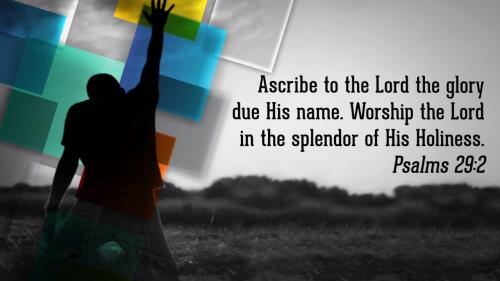-
O, To Be A Swallow Psalm 84 – A Psalm Of The Sons Of Korah Series
Contributed by Ron Ferguson on Apr 7, 2022 (message contributor)
Summary: This beautiful Psalm written by one of the Sons of Korah and set to music, is a fervent desire to be with the Lord and in His presence. His whole being longs for the Lord, to be in His courts. It is a really edifying Psalm.
O, TO BE A SWALLOW
Psalm 84 – A Psalm of the Sons of Korah
My Soul Longs for the Courts of the LORD - To the choirmaster: according to The Gittith. (Probably a musical or liturgical term) A Psalm of the Sons of Korah.
PSALM 84 VERSE 1: “How lovely is your dwelling place, O LORD of hosts! Verse 2: My soul longs, yes, faints for the courts of the LORD; my heart and flesh sing for joy to the living God.”
Here the psalmist draws a conclusion that comes from his experience and knowledge of the Lord. Only knowledge and life experience can result in feeling and emotion that are sound, otherwise it is misplaced. Incorrect conclusions are derived from inferior knowledge and understanding. Note carefully the title for this Psalm, “My Soul Longs for the Courts of the LORD.” This is a deep desire that controls his being and motivates all he does, and all that his faith rests in.
What is the dwelling place of the Lord? People these days would be inclined to say, “It is in heaven.” However, it is much more than that. The psalmist knew it as the Tabernacle for the Temple may not have yet been constructed. God’s presence was in the Holy of Holies. If a Christian answers that question, then he knows that God dwells in heaven, but the Lord lives also in the individual life of a believer. It was Jesus who said, Revelation 3 v 20 “Behold, I stand at the door and knock. If anyone hears My voice and opens the door, I will come in to him, and will dine with him, and he with Me.” 1John 4:13 “By this we know that we abide in Him and He in us because He has given us of His Spirit.” John 15:4 “Abide in Me, and I in you. As the branch cannot bear fruit of itself unless it abides in the vine, so neither can you unless you abide in Me.”
Verse 2 says the writer’s soul longs for, even faints for the courts of the Lord. What does that mean? He wished to be in the very courts of the Tabernacle. The Tabernacle had Courts and the first was the outer court where the people could come through the gate but were not permitted to go any further. Only the priests could go into the inner court. The outer court was where the brazen altar was and the brazen laver for the priests to wash their hands. The Sons of Korah were priests so they could enter the inner court.
The inner court had the Table of Showbread, the Incense Altar and the Golden Lampstand. Beyond that was a curtain, and the Ark of the Covenant with the Mercy Seat, and the two Cherubim. The priests ministered in the inner court, but only the High Priest could go into The Holiest Place behind the curtain just once a year. This psalmist just loved being in that inner court for ministry and fellowship. It is so rich in teaching and we did that some years ago in the furnishings of the Tabernacle bible study. There is not the time now to go into what each of those items meant.
The fact we must not miss is this – the writer was not content being just in the outer court. He said “courts” and he loved to be close, and in a holy place with His Lord. It meant fellowship, communion, reflection, nearness, soul-searching and expression such as in his psalms. One hymn has a line, “There is a place of quiet rest near to the heart of God,” and it is in that place where the psalmist was found, and so must we also be found there. In the churches probably the majority of people have entered the outer court but have little interest venturing any further. That is a great disappointment to the Saviour and a devastating loss of blessing for the individual.
All need to be in that inner court to feed on the wholesomeness of the Bread of Life, and enter into understanding and clarity with the Light of the World and offer up praise and worship with the sweet incense from a redeemed heart to the One who presented Himself as an offering and a sacrifice to God as a fragrant aroma.
“My heart and my flesh” - My whole nature; my body and my soul; all my desires and aspirations - all the longings of my heart are there. The body - the flesh - cries out for rest; the heart - the soul - for communion with God. Our whole nature demands the benefits which spring from the worship of God. “Body and soul were made for his service, and the necessities of neither can be satisfied without religion.” Barnes

 Sermon Central
Sermon Central



